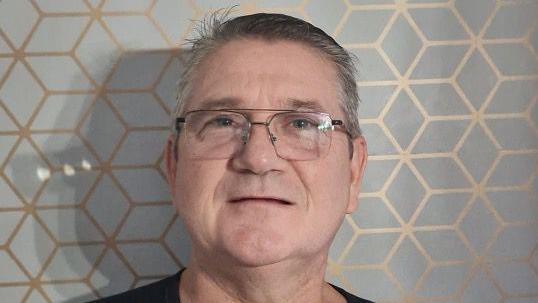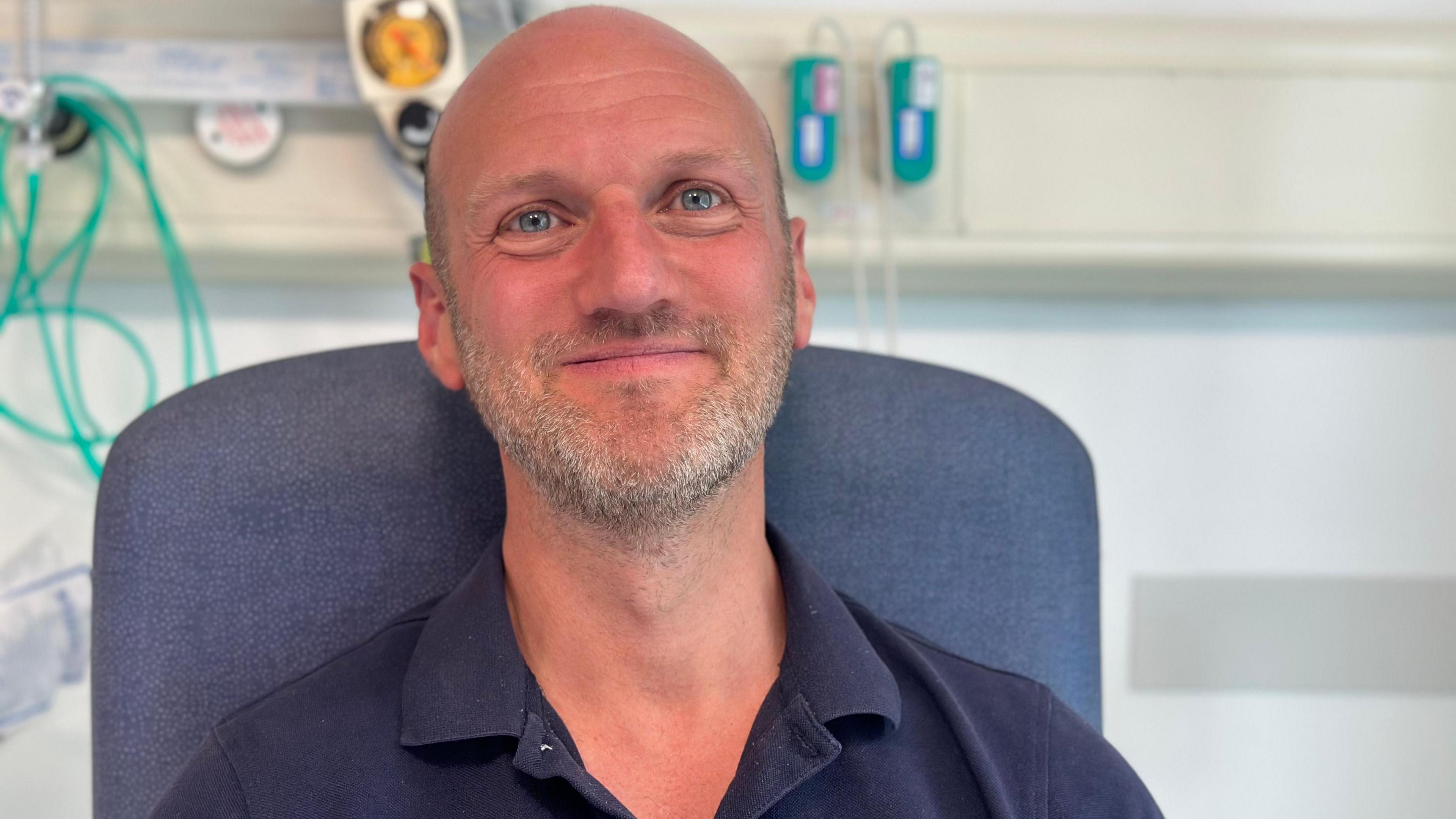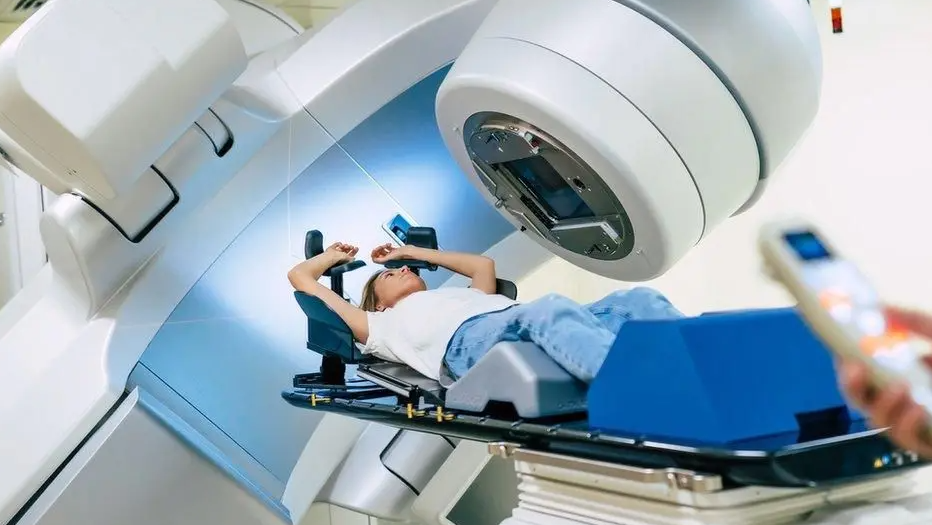Man joins cancer trial after losing dad and uncle

Dean Burton has been suffering from heartburn for over 30 years and will take part in the trial to explore whether it is a symptom of cancer
- Published
A man is taking part in a £6.4m clinical trial after losing his dad and uncle to cancer within days of each other.
Dean Burton, from Coventry, has been on lifelong medication for heartburn - which he has suffered with for more than 30 years.
The plumber has now joined Cancer Research's BEST4 screening trial to see if his heartburn could be a symptom of oesophageal cancer.
He said: "My family's experience [of cancer] has brought home to me how important it is to catch things early."
Mr Burton's dad Graham Burton, 72, died of stomach cancer in August while awaiting further tests. Nine days later, his uncle died of prostate cancer.
The 56-year-old said: "I've been on indigestion tablets for over 30 years.
"If I don't take my pills, I wake up struggling to breathe which can be terrible.
"As soon as I got the invitation to go on the trial, I jumped at the chance. Not just for me but for my son and for all the other families out there that have been or will be affected by cancer."
The trial will find out if a new 'pill-on-a-thread' test could be used to screen people with heartburn for Barrett's oesophagus, a condition that can lead to oesophageal cancer.
The 10-minute test, which is less invasive than an endoscopy, starts off as a small coated pill attached to a piece of thread.
When a patient swallows the pill and it reaches the stomach, the coating dissolves and a sponge inside it expands to the size of a cherry tomato.
The sponge collects cells from the oesophagus as it is gently pulled out from the stomach by a nurse or GP.
Cells are then sent for testing for two proteins, which tell doctors if someone has Barrett's oesophagus or oesophageal cancer.
The trial is backed by £6.4m of funding from Cancer Research UK and the National Institute for Health and Care Research (NIHR).
It will explore whether the test can detect oesophageal cancers earlier, reducing the need for intensive treatments and preventing deaths.
According to Cancer Research UK, there are about 9,300 new cases of oesophageal cancer in the UK every year.
It is the seventh most common cause of cancer death in the UK, with about 22 deaths a day from the disease.
Prof Rebecca Fitzgerald, director of the Early Cancer Institute at the University of Cambridge, is the inventor of the capsule sponge test and co-principal investigator of the BEST4 studies.
She said: "The capsule sponge is changing how we detect Barrett's oesophagus and oesophageal cancer.
"Catching it earlier can save lives by reducing the need for chemotherapy and surgery to remove the oesophagus.
"The BEST4 Screening trial is the pinnacle of many years of painstaking research.
"This trial could fundamentally transform the lives of people affected by oesophageal cancer by providing the crucial evidence needed to make it a viable screening programme, rolled out to every part of the UK."
Get in touch
Tell us which stories we should cover in Warwickshire
Follow BBC Coventry & Warwickshire on BBC Sounds, Facebook, external, X, external and Instagram, external.
- Published16 June

- Published29 April

- Published28 January
